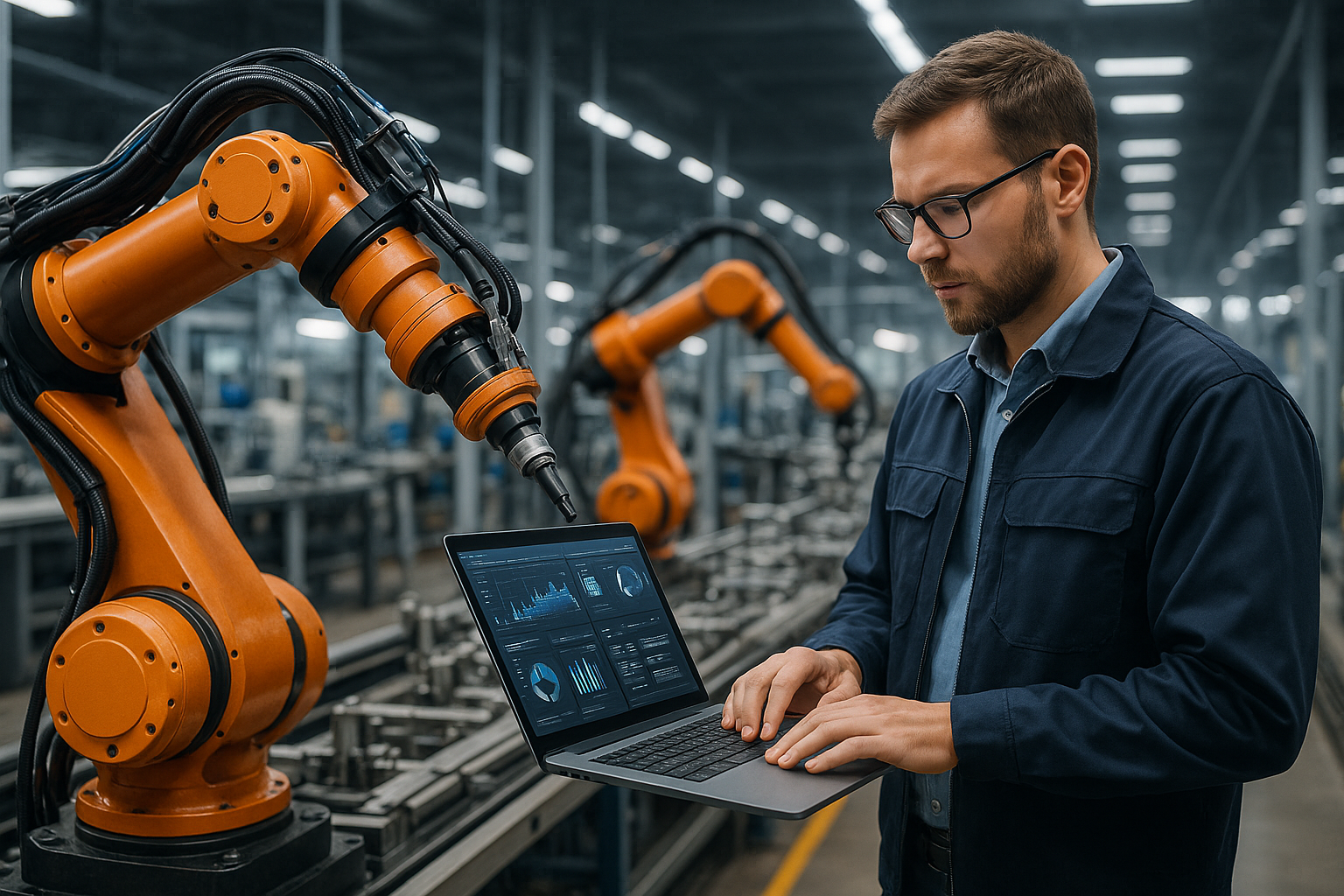Adapting to Industry 4.0: A Smart Manufacturing Approach
As businesses grapple with the relentless pace of change in the industrial sector, mastering the dynamics of Industry 4.0 is fast becoming a survival imperative. This wave of digital disruption is redefining traditional manufacturing frameworks, fueling the rise of smart factories and driving a paradigm shift in industrial operations. Let's delve into what Industry 4.0 entails and its implications for businesses in the manufacturing sector.

Understanding the Industry 4.0 Phenomenon
Tracing the roots of Industry 4.0 takes us back to the early 2010s, when the term was first coined at the Hannover Fair in Germany. It represents the fourth industrial revolution, following the steam engine, electricity, and information technology. Industry 4.0 signifies the integration of cyber-physical systems, the Internet of Things (IoT), cloud computing, and cognitive computing into manufacturing processes.
The Dynamics of Smart Manufacturing
Smart Manufacturing, a vital component of Industry 4.0, involves the use of advanced digital technology to improve processes, increase productivity, and enhance quality. It leverages data from various sources, including machine sensors and production lines, to inform real-time decision-making and optimize manufacturing operations.
The Impact on Business and Industrial Processes
The advent of Industry 4.0 and smart manufacturing presents both challenges and opportunities. On the one hand, businesses must grapple with the complexities of integrating digital technologies into their operations. On the other, these technologies offer unprecedented opportunities for efficiency, customization, and speed.
Research-backed Insights into Industry 4.0
According to a PWC survey, by 2020, over 70% of businesses planned to implement some form of digital factory technology in their operations. This trend underscores the increasing recognition of Industry 4.0’s potential to revolutionize manufacturing processes.
Key Strategies for Industry 4.0 Adoption
-
Implement a strategic roadmap: Businesses must ensure a phased and systematic adoption of Industry 4.0 technologies.
-
Invest in workforce upskilling: Equipping employees with the necessary skills is critical for managing digital transformation.
-
Foster a culture of innovation: An innovative mindset will help businesses stay ahead in the Industry 4.0 era.
-
Prioritize cybersecurity: With increased digital connectivity comes heightened vulnerability to cyber threats.
In conclusion, Industry 4.0’s influence on the business and industrial sectors is profound and far-reaching. As digital disruption continues to redefine the manufacturing landscape, businesses that can adapt to these changes and harness the power of smart manufacturing will be well-positioned to thrive in this era of Industry 4.0.




